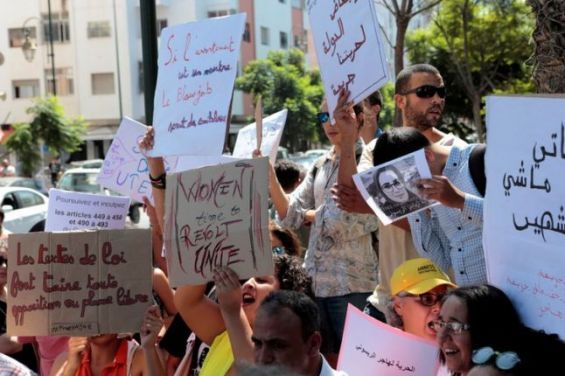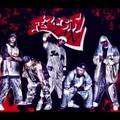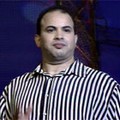A first instance court in Rabat sentenced, Monday, Moroccan journalist Hajar Raissouni to one year in prison for violating articles 454 and 490 of the Criminal Code, which criminalize «abortion» and «sexual relations outside marriage».
Arrested since August 31, Hajar Raissouni was convicted alongside her fiancé, a Sudanese national, gynecologist and two of his assistants. Denying all accusations, the Akhbar Alyaoum journalist believes that charges against her are «fabricated» and «politically motivated».
But her conviction did not go unnoticed in both Morocco and elsewhere. International human rights organizations, which have been closely following the case, reacted to the court’s ruling, they considered «devastating».
International NGOs and individual freedoms in Morocco
«[Monday’s] verdict is a devastating blow for women’s rights in Morocco. Hajar Raissouni, her fiancé and the medical staff involved in the case should never have been arrested in the first place», argued Amnesty International’s Regional Director for MENA Heba Morayef in a statement published Monday.
«Instead of arresting them, publicly slandering Hajar Raissouni, invading her privacy and convicting her on unjust charges, Morocco’s authorities should revoke her conviction and order her immediate and unconditional release as well as the release of all others involved in this case», stressed the British non-governmental organization.
While Amnesty International sees Hajar Raissouni’s conviction as «a form of discrimination against women», Reporters Without Borders (RSF) believes that the judicial persecution of the young journalist is «profoundly unjust».
«Using the private lives of journalists to put pressure on them is unacceptable. We call for her acquittal on appeal», wrote the Paris-based NGO that conducts political advocacy on issues relating to freedom of information and freedom of the press in a communiqué released Tuesday.
Meanwhile, the Clooney Foundation for Justice, which monitored the trial of Raissouni and four co-defendants, states that the trial in question «bears the hallmarks of an unfair and punitive process».
«The defendant was subjected to a non-consensual, invasive medical examination by a medical professional the defense asserted was unregistered, implicating her right to be free from torture and cruel, inhuman, or degrading treatment», wrote the NGO in a report published Monday.
Local NGOs and Morocco's «outdated laws»
The conviction of the Moroccan journalist was also condemned by local human rights and freedom of expression associations in the Kingdom. Speaking to Yabiladi, Tuesday, Mohamed Elaouini from HATEM, a Moroccan organization that defends freedom of the press and expression, stressed that we are dealing with an «unfair trial».
«The ruling, rendered yesterday, violates freedom of speech and individual rights», he argued. «It was obvious, since the beginning, that the case was approached in a special way : the court refused to grant the defendants conditional release», he recalled.
To the activist, Moroccans must focus on how this case is «harming the image of the country which has been reported by international media (...) it reveals the differences and the struggles lived by a large group of Moroccans, when it comes to freedom of expression and individual rights».
On the other hand, Driss Sedraoui, head of the Moroccan League for Citizenship and Human Rights (LMCDH) recalled that his NGO sees this trial as a «form of revenge» that targeted the journalist for «her writings and her investigations».
«We hope that the court would reconsider this decision and turn the page on systematic harassment of journalists», he argued. To him, the «court’s ruling undermines the image of the Moroccan state and shows the country as a nation that prosecutes men and women for having sex».
Reacting to said trial, Boubker Largo, president of the Moroccan Organization for Human Rights (OMDH) believes that «Hajar Raissouni’s case is just the tip of the iceberg». He recalled that a significant number of «victims have fallen for laws criminalizing abortion».
«We are talking about laws that do not solve problems. The verdict is severe and did not take into account international conventions on freedoms», he added.
Meanwhile, Latifa Bouchoua, president of the Federation of Women’s rights League (FLDDF), who was «saddened and unpleasantly surprised by the ruling», shared a similar opinion. The activist believes that «the ruling was harsh» and «out of date».
«We must think of amending similar laws that do not go hand in hand with the situation of our society and the progress we are making in terms of freedoms», she concluded.





 chargement...
chargement...













